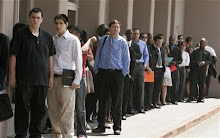3: The fatal - Nothing is more chilling to hear on the police scanner than an officer reporting to dispatchers that a car accident is “Code Black.” That was the lingo in West Virginia for a fatal car accident. Although it was my job as police reporter, I hated going to the scene, especially for motorists who were ejected from their cars. I saw things that no one should see and would never be described in print, although I have no doubt firefighters and police officers saw much worse. It’s something I hated, but certainly was important for the public to have a reporter at the scene to get the most accurate information.
2: Grieving families - After each tragedy, the public invariably wants to know about the deceased, and no one has better information than relatives. People grieve in different ways, and it was my job to contact them for interviews. After finding their phone numbers, it would take me a minute - and a few deep breaths - to suck up the strength to dial those digits. After introducing myself and my intentions, I always offered my condolences. Each time, I tried to put myself in their shoes and consider how I would feel about a nosey reporter calling during a difficult time. But I found that many grieving relatives were happy to talk. I’m not sure if it was therapeutic, or they just wanted the public to know a little bit about their family member, but more often than not, I was met with little resistance. Even though it was my job to produce a story, much of me hoped the conversation helped console them. In a sense, I gave them a final chance to talk about their loved one.
1: The murder-suicide - Just a couple months into the job in Charleston, I had the chance to meet a man creating a customized motorcycle - ala Orange County Choppers - to honor West Virginia. I interviewed the man and wrote a full-page story about the creator and his motorcycle, which would be raffled off for charity. It was a story I was proud of. But just seven months later, I had to report that the man fatally shot his wife before turning the gun on himself. While doing a follow-up story, I interviewed one of his wife’s friends, who was in the house at the time of the shootings and she told me in chilling detail about how the couple’s two young children witnessed the killing. I wrestled with my role as a story teller and how it affects people’s lives. The hurt it caused the family weighed against the public’s interest in an important story. That report earned me a 3rd place award for feature story in West Virginia, but it still haunts me more than three years later.
-30-





That's like 9 lbs of "good story" in a 5 lb bag... I really enjoyed both of these...
ReplyDeleteHow long, on average, did you wait between when someone died and when you would talk to the family? Are we talking hours, days, or longer?
Usually it was the following morning, and with a 9 a.m. deadline at the Daily Mail, that sometimes led to early morning phone calls. I have a lot of respect for those family members who would graciously answer a reporter's trivial questions during the worst times of their lives.
ReplyDeleteWow, that seems ridiculously early... I admire your ability to do that... I doubt I would talk to you 3 hours after finding out my kid's dead... But not because you aren't a swell dude :-)
ReplyDeleteThere certainly was a grieving period that we allowed. I would never call someone immediately after finding out... Sometimes it was later the next afternoon, but I certainly would never call only three hours after. Like I said before, the tough part about journalism is weighing your own feelings with the job. But that's what makes you human. More often than not, I put myself in the person's mindset and did my best to make them at ease.
ReplyDeleteOh, Jimmy, how true. Everytime I called the relatives of the deceased, I would always have to take those few cautoinary breaths. Even then, most of the time the phone call would start with my heart beating so hard it seemed like the person on the other end of the line could hear it too.
ReplyDeleteEvery reporter has their own style, and I always said the same basic thing: My name is Amanda Gillooly and I am a reporter and I am SO sorry I have to call at a time like this...but I wanted to let you know personally that I am writing a story about your son/daughter and I didn't want you to be upset or taken by surprise by a newspaper story tomorrow. And I didn't want him/her to be just another name in a newspaper...
Love the writing, man. Keep up the awesome blogging buddy.
"If you can stuff a deer, you can stuff a boy!"
ReplyDelete"Stuffa deer, stuffa kid." Get it right, Logan! If I had a Top 3 bizarre moments list, then that would've made it. Certainly an interesting interview I had in Logan County, W.Va.
ReplyDelete